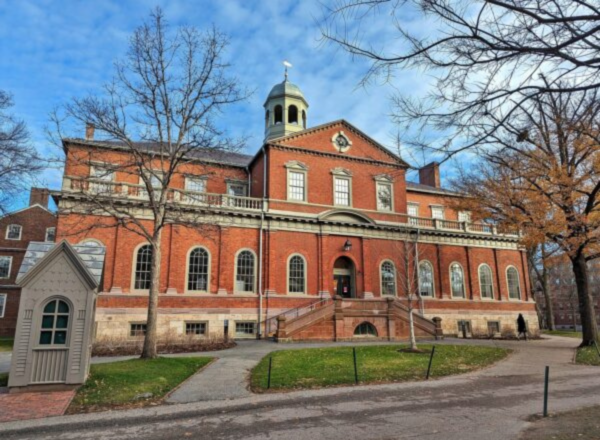Ted Hoskinson Founder Roots and Wings
Ted Hoskinson, founder of Roots and Wings, sat down with Invest: to discuss the learning and reading gap in Palm Beach County, the unique way his nonprofit organization designs programming to address it, how funding has evolved as the region grows and more.
What milestones and highlights have defined 2023 for Roots and Wings?
The most important milestone of ours has been continuing to broaden the number of schools and children we are able to help. Roots and Wings received a few donations at the end of 2022 that allowed us to expand in 2023 from nine schools to 13 and 765 children to 1,000. Those children are primarily in grades first through third, however, through our growing initiatives, we have been able to expand to fourth-and-fifth-grades to reach children who have passed each year but are not as literate as they need to be. Through a grant, we were able to start a pilot project in a school to add math and science to our core program. This is important because, better than most, we understand that when a student encounters a word problem, if they can’t read, they cannot complete their assignments. If they can’t understand and evaluate what they are reading, they are barred from discovering their talents, passions, and interests. Our expansion includes schools north of us, and we plan to add even more in 2024. There are many Title I schools in this county, and we are only dealing with the bottom 20% of those children. We are making a difference in their lives and making sure the next generation is becoming more literate.
How has the nonprofit sector evolved amidst population and business growth?
The nonprofit sector becomes more fractionalized with more money. There are many people who start nonprofits, and there are so many in our area doing wonderful work. People have to eat, and they have to have a bed, electricity and support in the home. Some children do not have these, which makes our job much harder. We collaborate with so many organizations for this reason. Many organizations address reading as an umbrella but each does it in a different way. Some go into schools during the day with adults donating their time to read with children. Our structure is not rocket science – there are many children who need extra time to read, and we are unique in addressing this in after-school programming. The program is 52 hours and free. Parents have to give their permission for students’ involvement and they have to have no more than two absences. Students get into small groups with similar reading challenges that each have a teacher and literacy coordinator that teaches them the curriculum. Over time, this has proven to be very successful with 94% of our children gaining better literacy.
The most important thing for us has been to get out into the community and tell others who we are and what we do. Knowledge is power, and the most important thing you can do is show and tell people how to utilize their passions for a greater purpose.
Children have been greatly affected by the pandemic. They need to be hugged by another child. They learn by being in a classroom alongside other children. The effects continue today as we work to make up for learning loss.
How has the flow of donations changed as the South Florida region grows?
We have regularly gone through the grant writing process, which has been successful. In our first year, we worked with 30 children in one grade, and that summer I had an acquaintance offer $10,000 if I could raise another $10,000. This would allow me to have another program in another school. We raised it within a month, and we went from 30 kids to 120 in the next cycle. The grants fell into place after that.
We have grown as a result of the rising need for our programming following the pandemic and spreading the word about our work. Donations begin to come in as more learn about us, which broadens our impact.
How are you addressing the learning loss crisis?
This has to be addressed in two ways. The “summer slide” affects all children during the summer months, especially the children we work with who do not have books at home or ways to even get to the library. We encourage children to read and prevent school absences. If they have perfect attendance, they receive a shirt that says “Perfect” on it, and we give gold, silver and bronze certificates for reading gains.
What is your outlook for Roots and Wings and Palm Beach County’s nonprofit sector in the next few years?
If we are lucky enough to get additional resources, we will continue to expand the program as it is and refine it where possible. I could see 3,000 students in three-to-five years. There is no end to the need of helping children in Title I schools read. There are over 100 Title I elementary schools in Palm Beach County. It’s not like this problem will just go away any time soon. We have to address it if we want success for our society. Until we all decide that the problems nonprofit organizations face are important and give them the resources they need to accomplish them, we will not support growth. The goal is to be out of business with problems solved. Until that time comes, we will have dedicated people caring about and addressing these issues.













